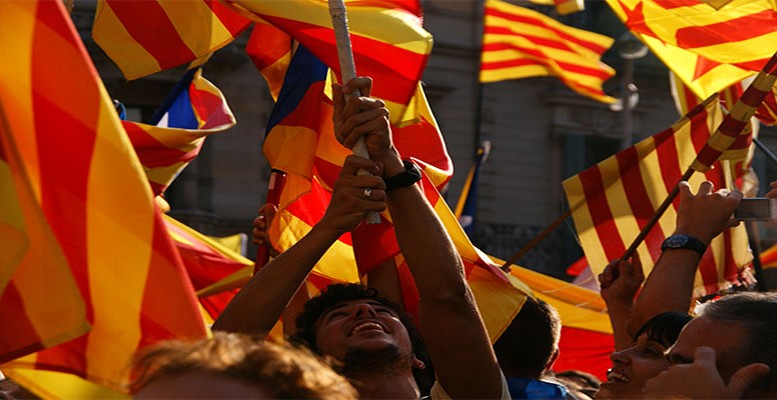We have reached the next stage in the Catalan crisis. Rajoy’s government – with the agreement of Pedro Sánchez and the Cs – has requested that Catalan president Puigdemont clarifies whether or not there has been a declaration of independence. Otherwise, article 155 of the Constitution will be implemented, implying a limitation on the region’s autonomy. In exchange, the PP has accepted the socialists’ proposal to open up the reform of the Constitution.
What will happen? We are waiting for Puigdemont’s answer and it’s true that article 155 does not necessarily mean a disaster. But it could be. It’s never been applied up to now. How and who would govern Catalonia? How would the independent movement react? If there was disorder – we are not talking about violence – Catalonia would suffer. And lots of companies – starting with CaixaBank and Sabadell and followed by Gas Natural, Planeta and Catalana Occidente – have already been convinced they ought to transfer their headquarters outside of Catalonia so as not to lose the confidence of savers and clients.
But the instability could also affect the Spanish economy. The IMF and the rating agencies have issued a warning. The stock market has been nervous and the risk premium has increased. Up to now only slightly.
In this context, Spaniards’ confidence is beginning to be eroded. The INE’s Business Confidence Index had been rising for six consecutive quarters and, suddenly dropped 1.1% in the fourth quarter. The Consumer Confidence Index, which had increased without stopping since February, fell 5.6% in September, although is still slightly over the 100 base. And the CIS’ more general Index of Political Confidence, which ranges between 0 and 100, is at the very low level of 32,5, with a monthly decline of 4.1%, which is even more marked in the sub-index of expectations.
Article 155 is an unknown quantity – it depends to a large extent on how it is implemented – and Professor Muñoz Machado warns that we shouldn’t dramatise it. But what is certain is that it would mean a breakdown of the constitutional normality.
Catalan nationalism has revived Spanish nationalism – and it couldn’t be any other way. And this phenomenon is even happening inside Catalonia. When the leader of the Cs, Albert Rivera, insists on calling for new elections in Catalonia it’s because he believes he will benefit from these polls.
The independence movement needs to reflect. The fact that 2 million Catalans voted on October 1, despite all kinds of obstacles from the Madrid government, shows there is a huge force behind this which the PP erroneously underestimated. But it’s no less true that the 47.8% which it obtained in the “plebiscite” elections in 2015 was by no means a guarantee for independence. The same as the 38% of people who said yes (of the census) in a referendum on with a 43% participation rate on October 1. Whatsmore, it’s already been seen that there is a risk of social breakdown and the economic consequences of the adventure are very dangerous.
On the other hand, trusting in international mediation is to be ignorant of the European reality. It’s true that Europe intervened in the crisis in Yugolslavia and helped independence in Slovenia after a unilateral referendum. But at that time the context was the breakup of the Soviet Union (Yugoslavia was a kind of appendix), there had been deaths and serious violations against human rights (then in Kosovo there were even more) and the whole of the western world applauded the fall of communism.
There is no comparison with the current situation in Spain, which is an important partner in the European Union. It’s not in Europe’s interest to see Spain weaken and it even fears that Catalonia’s independence could leads to a sub-division of states which could create a crisis in the EU.
We have the reiterated declarations of Merkel and Macron. Then there is the President of the European Council, Donald Tusk, recommending dialogue or the European Parliament condemning the violence against voters on October 1. But that doesn’t signify there is any will to intervene in the internal matters of a member state.
Rajoy has three big hurdles. Firstly, separatism is only prepared today to negotiate a referendum of self-determination. Secondly, neither of the main parties, the PP and the PSOE, want this referendum, which the Constitution also makes almost impossible. And thirdly, Rajoy up to now has shown himself incapable – and insensitive – of negotiating any other kind of relevant issue.
I would like to talk about something else in future articles, but…





